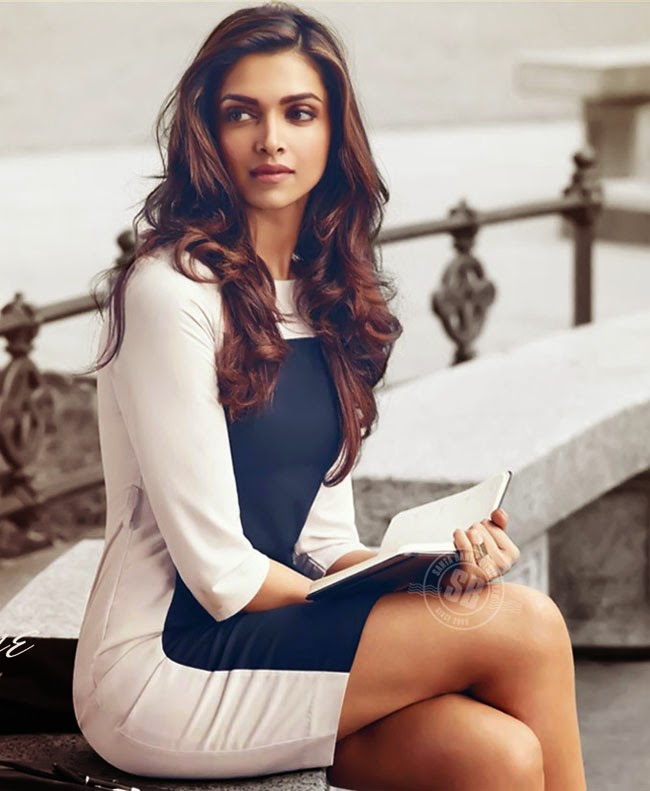I haven't done an installment in my "Let's talk about" series in ..gosh, quite a while. I figured it might be good time to bring it back up, as I'm trying to give my blog a bit of a revival, and what better way to do it, then discuss a star who's only still at the beginning of her career, and somebody I like, but don't consider myself a fan of. Yet? Maybe?
Deepika Padukone started out as another model pushed out into the world of cinema, forced to learn on the job, and who some people probably didn't think we'd be seeing much of, seven years from her debut. And yet, here we are - she's undeniably gorgeous, but people seek her out as an actress because she's a star, and she can have great, evocative performances. When it comes to on-the-job training, she hasn't floundered all that much - her early films aren't great, but show me a star whose first films are all great picks, great performances and considered classics to this day. That almost never happens.
I think I went with the majority view on Deepika throughout her career. I wasn't in love with her in Om Shanti Om - good dancer, breath-takingly gorgeous, yes, but an amazing actress? I didn't really think so, even though I also thought the role(s) were flimsy as hell. Farah Khan, for all her other virtues, has never written great female characters.
I haven't watched most of Deepika's body of work so far, but based on the films I did see, her steady improvement as an actress sort of snuck up on me. One day she was an actress I didn't really mind one way or the other, and the next I'm watching Break Ke Baad on the plane and thinking, "Damn, this lady is the best thing about this film!". (She was also in another film I watched on a plane journey: Chandi Chowk to China. Uhh. The less said, the better, probably.)
I've missed some key films where the progress probably happened - Love Aaj Kaal has been on my "I'll get to it, whatever, it can wait" list for nearly five years now, and I'm still like, whatever, it can wait. Was she good in Aarakshan? Sadly, would have to watch Aarakshan to find out, which is just not a very appealing prospect. I did see Housefull, but then, that was Housefull, which was not exactly the film for powerhouse performances.
But luckily for me, and for my enjoyment of Miss Padukone's work, I did finally get to Cocktail, where she breathed life into Veronica, a character who was probably much less on the page. And then came 2013 and you couldn't throw a rock without hitting a Deepika Padukone blockbuster. I've still yet to see Ram Leela or Chennai Express, but Yeh Jawaani Hai Deewani was a gem, and will be remember long after some of those other films will have been forgotten, or at least I hope so. The future looks extraordinairily bright for Deepika, and I honestly couldn't be happier - unlike some people who rely on the value of their looks or their famous last name and rest on their laurels when they arrive onto the silver screen, it seems like she's put in the work, and it's shown up as fast improvement in her performances.
I didn't watch many Koffee with Karan episodes from this latest season, partly because ugh and mostly because argh, but I did see the wonderful episode with Deepika and Priyanka, where they had a great, genuine rapport with one another, and they both seemed like precisely the sort of smart, cool-headed women that gossip rags never want to portray actresses as, because all women are catty divas, right? Priyanka's had her gifts appraised by the industry already, but I think Deepika's best work is just around the corner, hopefully. The more capable, interesting film makers see her as an actress and less as eye candy to put in Race 2 or something, I'm sure we'll see new achievements from this lady.
So, I throw to ball to the audience. What do you think of Deepika? (And please tell me if I'm an idiot for missing out on some of her performances not mentioned here. I will gladly correct such mistakes.)
















































